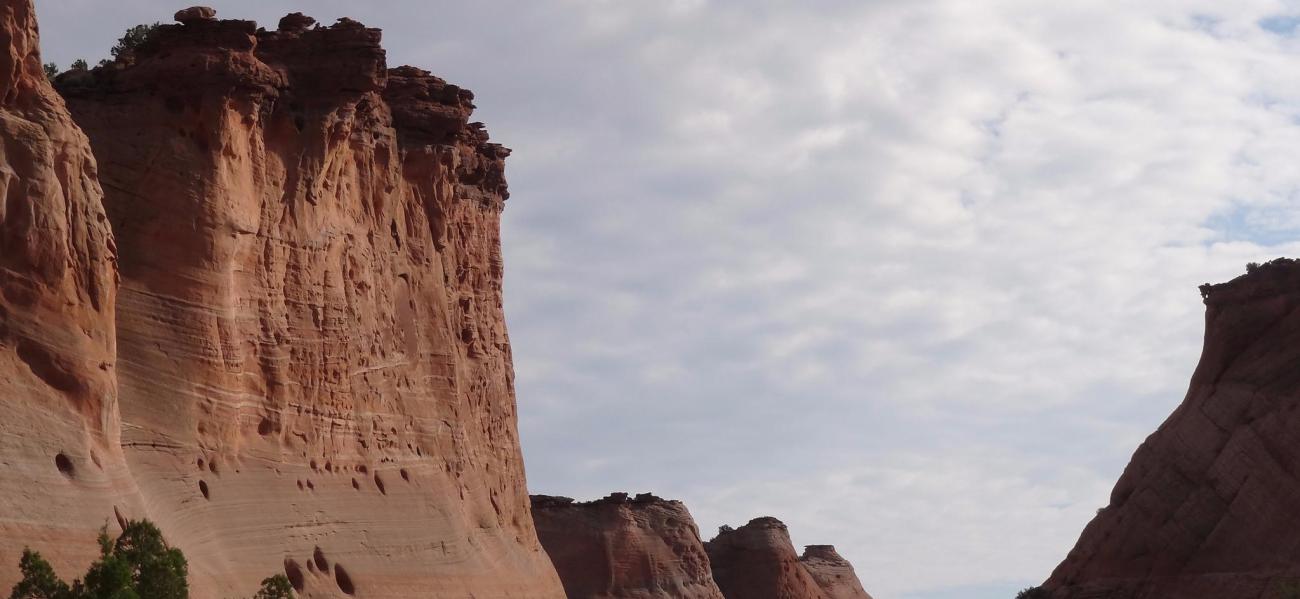
Step up now to preserve U.S. public lands
For Americans worried about where our environmental policies are headed, it’s important to remind ourselves that we have many important milestones to our credit. On March 1, 1872, President Ulysses S. Grant – a Republican – signed the bill that declared Yellowstone the world’s first national park, a vision of conservation that nearly every country now follows. A century later, on Dec. 28, 1973, President Richard Nixon – also a Republican – signed the Endangered Species Act into law.
This proud history of American environmental leadership means even more under the Trump administration, if only as a reminder that we know how to do better. Unfortunately, Trump has made a particular point of attacking our public lands, and he recently added a new milestone to the list that we will look back on with regret.
His April 26 signing of an executive order mandating an Interior Department “review” of more than two dozen national monuments marked the beginning of a new land grab out west. Interior Secretary Ryan Zinke is already preparing an interim report to the president, due in early June, on the fate of Bears Ears National Monument and Grand Staircase-Escalante National Monument, two beautiful and historically important sites in Utah that protect sacred Native American land and are supported by groups large and small across the region.
Zinke’s full report on the remaining 25 national monuments is due in August. Both reports are expected to recommend weaker protection for these sites. This review process includes a public comment period, which began May 12 and closes July 10, through which you can make your voice heard at regulations.gov. Unfortunately public comments on Bears Ears has already closed, but the remainder are still fair game – and if you want to have your say, there’s no reason to wait until the last minute.
With all due respect to the secretary, his reports will be based on the same flawed premise that produced Trump’s order: the notion that presidents can unilaterally declare a site no longer a national monument, or shrink it as easily as taking an eraser to a drawing. This pernicious idea has provided cover to interests who want to extract resources like oil, gas, coal and timber from these protected places.
To support this extraction campaign, conservatives have relied on the “never mind” defense. Never mind the fact that these activities are already permitted on millions of other acres of federal land. If Trump and his allies get their way, no acre of public land – no matter how many historic antiquities it contains or what natural wonder it protects – is safe. Never mind the attorney general opinion of 1938 finding that the Antiquities Act, the law granting presidents the power to declare national monuments, does not grant any power to eliminate them. If such a power existed, we would expect it to be spelled out in the law itself.
The Republican rhetoric claims that monuments are unpopular, declared in secret and imposed from above. None of this is true. National monuments – including many on the administration’s hit list – are designated after considerable public outreach, sometimes spanning years, and are among the most popular features of our nation’s public lands system.
We’re now hearing the public was left out of designating these places, even though it’s not true, because the extractive industries’ last argument – “We want to drill here” – wasn’t working.
Sometimes the truth still comes out. Kathleen Sgamma, president of the Western Energy Alliance, recently admitted that the interest in Bears Ears has as much to do with profit as fairness to the public, saying, “There certainly is industry appetite for development there, or else companies wouldn’t have leases in the area.”
This was no slip of the tongue. The American Petroleum Institute sent House Natural Resources Committee Chairman Rob Bishop, R-Utah, and Senate Energy and Natural Resources Chairwoman Lisa Murkowski, R-Alaska, a letter in January, with an eye to setting the tone for the Trump administration, urging exactly the kind of “review” of public lands and the Antiquities Act that Trump has now ordered.
No campaign to weaken public lands protections is really about making the people’s voices heard. Don't let April 26, 2017, become a new and unfortunate kind of environmental milestone. Supporting public lands is going to be a full-time job under this administration. If you believe in that mission, it’s time to get to work.
By: Ranking Member Raúl M. Grijalva
Source: Billings Gazette
Next Article Previous Article
